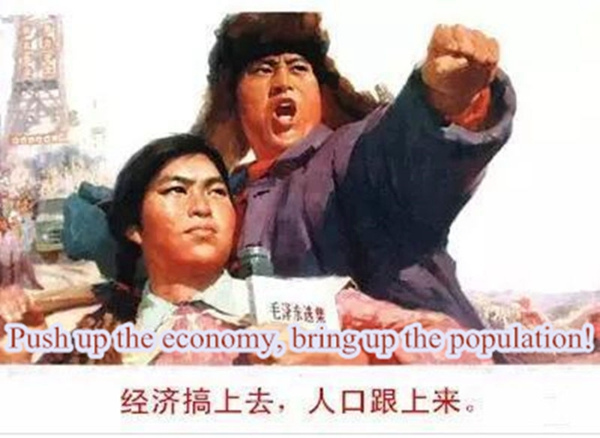
In 2007, the government softened the tone with new phrases: "For Mother Earth, control childbirth" and "Fewer and healthier births make the countryside prosperous". Some stressed gender equality: "Boys and girls are equally important" and "Girls matter to the nation's future".
Yet all "still strongly reflected the one-child policy", said Zhu, of the CPPCC.
According to official data, the one-child policy was estimated to result in the prevention of 400 million births, and China's population dropped from 22 percent of the global population in the 1970s to 19 percent by 2010.
Outdated content on the issue also appears in textbooks, he said, citing a paragraph in an elementary textbook in Zhejiang province that states: "From 1971 to 1998, the one-child policy resulted in a reduction of population, which saved 7.4 trillion yuan in child-rearing costs, almost equal to China's GDP in 1997."
"It's ridiculous," Zhu said, suggesting that if schools teach the idea that "fewer births can save money", children would wrongly believe they were worthless.
Today, people are China's most needed resource. While getting wealthier, the world's most populous country is also aging, with 220 million people aged 60 or older.
Premier Li Keqiang, in his Government Work Report, noted that China has a labor force of 900 million, including 100 million who have received higher education or are professionally trained. "This is our greatest resource and strength," he said.
Ironically, Chinese are now less inclined to take on the costs of more children.
Last year, births numbered 16.55 million, a drop of 320,000 from 2014, accounting for just 12 percent of the world's newborns. Demographic experts predict that the second-child policy will result in only 3 million more babies every year.
New Slogan!
Family planning slogans are now needed to help reverse this trend and they should be "more interesting, vivid, and well received", said Zuo Dongling, a deputy of the National People's Congress.
Social media is buzzing with tongue-in-cheek suggestions such as "Two babies rewarded; one baby fined; DINKs arrested", referring to those couples with "double income, no kids".
Zhu Lianqing suggested the government learn from neighboring countries, such as South Korea, which encourages its people with slogans like "Dad, I'm lonely, and I want more brothers and sisters", "More kids, better lives", and "The biggest legacy for children is siblings."
But just improving slogans is not enough for some. "Without improved services or polices, people will not have the courage to have more children-no matter how good the slogan," said Zhang Jingping, a working mother of two.
Other parents echoed her thoughts. Yu Li, a sales manager in the communications industry, who has two girls, wants preferential policies on school enrollment, and car and home purchases, as they are the most expensive and stressful requirements for raising children in large cities.


















































